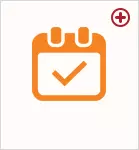About the Recovery Process
Mental health recovery is a process of working to achieve your goals while living with a mental health condition.
It’s important to remember that mental health recovery is an ongoing process, not a single outcome. Each person’s recovery experience is unique. By making a personalized plan for managing a mental health condition, you have the best chance of living a life that is meaningful to you.
Learn about the building blocks
of the recovery process
Just as the recovery process is ongoing, your participation in and commitment to your treatment should be ongoing too. Here are some things you can do to stay actively engaged:

Understanding
Your Condition

Staying on
Medication

Setting
Goals

Looking After
Your Total Health

Creating
a Strong
Recovery Team

Getting the
Support You Need

Relapse
Recognition
& Management





